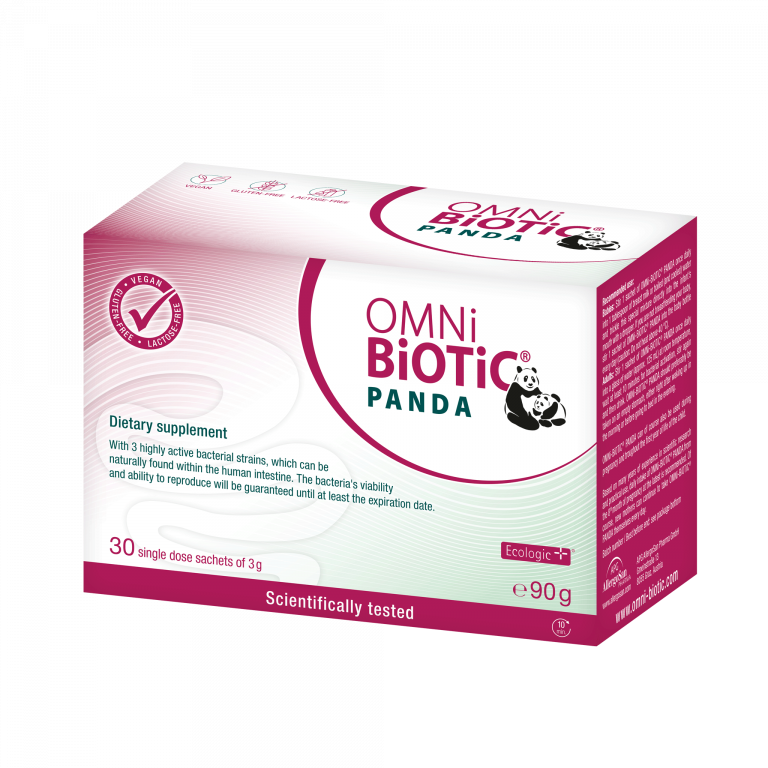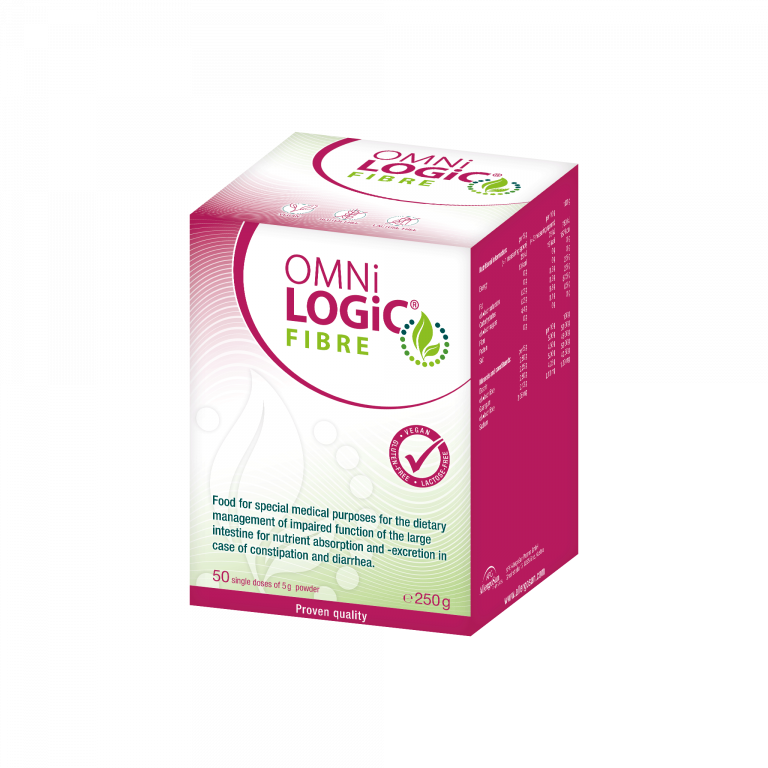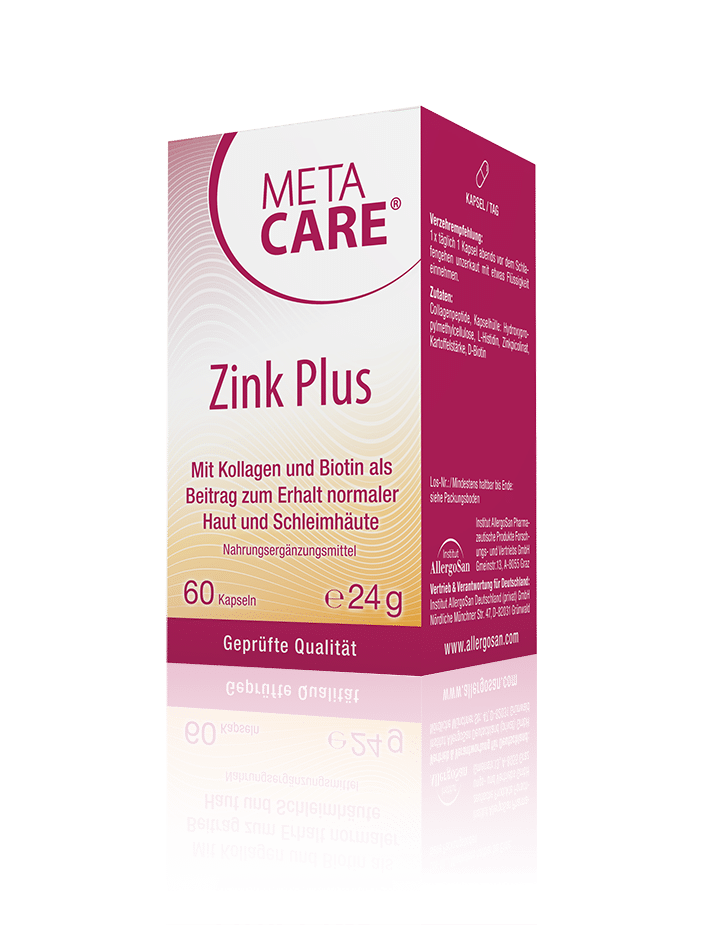Pregnancy & Breastfeeding
Our intestine is more than just a “digestive tube”: Hippocrates already referred to the intestine as the “root of all health”, and the increasing research around the intestine and its trillions of inhabitants, our microbiome, confirms this quite clearly.
Contents
The colonisation of the gut with the right bacteria plays a central role in digestion and nutrient absorption. Clinical studies show that babies’ guts receive important support from probiotic bacteria: Around every third child suffers from colic in the first weeks and months, which manifests itself in particular through excessive crying several times a week for more than 3 hours a day – this is not only painful and exhausting for the newborn, but also puts a massive strain on the parents’ nerves. In a study, it was shown that the supply of special probiotic bacteria resulted in a significant improvement of the infantile colic in more than 82 % of the babies.
The expectant mother’s digestion is also turned upside down during pregnancy: Due to hormonal changes and the increasing size of the child, complaints such as heartburn, constipation, flatulence or gastritis often occur, which cloud the joys of pregnancy. With gentle help from nature, e.g. from the papaya fruit or a combined preparation of oats and papaya, mum’s digestion is gently regulated.

Gut health - Important from birth onwards
The development of the child’s immune system in particular is shaped by the intestinal bacteria. Large studies at renowned clinics clearly show that by supplying the child with specially selected intestinal bacteria, the risk of allergies occurring can be reduced by 80 % – provided the child is supplied with it daily throughout the first year of life and the mother has also taken this combination of bacteria from the 8th month of pregnancy.
For a good start for mother and child, colonisation with the right bacterial strains is therefore of enormous importance. The mother’s intestine can be colonised with a healthy bacterial flora through a balanced, high-fibre diet and specially combined probiotics. This is transferred to the child in several ways: During a vaginal birth, the baby comes into intensive contact with the mother’s vaginal flora, whose beneficial bacteria originate from the intestine and which find their destination in the child’s body within a very short time.

What helps with digestive problems and heartburn during pregnancy?
The joy of pregnancy at the beginning is great, but with the growing bump, more and more unpleasant side effects can come along. From flatulence to diarrhoea to constipation, these can severely restrict the expectant mother’s everyday life. The causes of these digestive problems are physical and hormonal changes during pregnancy.
Superfood: Breastmilk
When breastfeeding, the child also absorbs important beneficial bacteria through the mother’s milk, which form a crucial basis for health. However, the natural colonisation with important intestinal bacteria is significantly reduced in children who are born by caesarean section or who are not (or cannot be) breastfed. This also explains why children who are born by caesarean are significantly more susceptible to allergies than those babies who pass through the vaginal birth canal. In order to promote the colonisation of the child’s intestine in the best possible way, special probiotics are available, which newborns should take daily during their first year of life.

Probiotics during Pregnancy
In addition to a diet adapted for pregnancy, sufficient exercise and stress avoidance, the use of high-quality probiotics is recommended to restore the balance in the intestine. The mother’s own “good” intestinal bacteria receive support from viable probiotic intestinal bacteria. The colonisation of the mother’s intestine with the “right” strains of bacteria ensures a good start for mother and baby. On the one hand, this can have positive effects on the expectant mother’s digestive complaints and on the other hand, to prepare the mother’s intestinal flora for the birth, as the baby then immediately receives an ideal basic supply of the first important bacteria during a vaginal birth. These useful bacteria, which originally come from the mother’s intestine, find their destination in the child’s body within a very short time. If allergies occur frequently in families, changes in the immune system can occur during pregnancy – an imbalance develops between two important groups of immune cells (the so-called TH1 and TH2 cells), which can be transferred from the mother to the baby. However, this allergic shift can be regulated with selected probiotic bacteria.
The 3 Step Concept for Gut Health & Pregnancy
A Good Start for Mother & Child

Step 1: OMNi-BiOTiC® PANDA
Active intestinal bacteria are important for the development of the newborn child: the intestine itself is not only the site of nutrient absorption and digestion but also the location of 80% of our immune cells! For all processes in the intestine to function, we depend on the activity and diversity of our intestinal bacteria – and the development of the child’s intestinal flora already begins with the journey into life.
Studies show that the use of specially combined bacterial strains has proven successful for both mother and child: OMNi-BiOTiC® PANDA contains four scientifically tested bacterial strains that occur naturally in the human intestine.
Therefore, the daily intake of OMNi-BiOTiC® PANDA is recommended for the expectant mother from the 8th month and for the baby from the 1st day of life – for a good start for mother and child!


Step 2: OMNi-LOGiC® FIBRE
Over the course of pregnancy, many women notice unpleasant problems in the digestive tract: the hormone balance changes and as a result, among other things, the transport of food is slowed down. In addition, some women have a different diet during pregnancy, which can affect the important intestinal flora.
Especially during pregnancy, a sufficient supply of dietary fibre is therefore of great importance. OMNi-LOGiC® FIBRE provides you with 8.8 g of pure dietary fibre per daily dose from two scientifically well-researched sources. Resistant maize dextrin and guar gum are excellently tolerated and a high-quality food source especially for important bifidobacteria and lactobacilli.
Top tip: You can add OMNi-LOGiC® FIBRE to any liquid (water, juice, tea, yoghurt, soup, …) without changing its taste or consistency! Do something good for your intestines and make up for your fibre deficit – with just 2 x 5 g OMNi-LOGiC® FIBRE per day.

Step 3: META-CARE® Zinc Plus
Many women enjoy shiny hair and radiant skin during pregnancy. The reason for this is that the hormone oestrogen, which is produced in greater quantities, has a positive effect on the hair, which appears strong and healthy. After birth, on the other hand, there are often problems with the skin, hair and nails when the hormone level quickly drops again. A very central nutrient for the body is the trace element zinc.
META-CARE® Zinc Plus was specially developed to prevent the zinc balance from becoming unbalanced. The additionally contained biotin influences numerous metabolic processes, in the nervous system and also contributes significantly to healthy hair growth. As an extra plus, it contains collagen peptides, which are found in the structure of the skin.
Feel good in your skin – with just 1 capsule of META-CARE® Zinc Plus daily!
Baby suffering with colic?
During pregnancy, flatulence or constipation occur more frequently. In addition, 30 % of newborns are tormented by painful colic, which is a real test of endurance for parents and children. A recent study investigated whether a special multi-species synbiotic can improve these symptoms. How does colic start and how do these attacks of pain differ from normal crying spells? Also: What can I do to help my baby?












